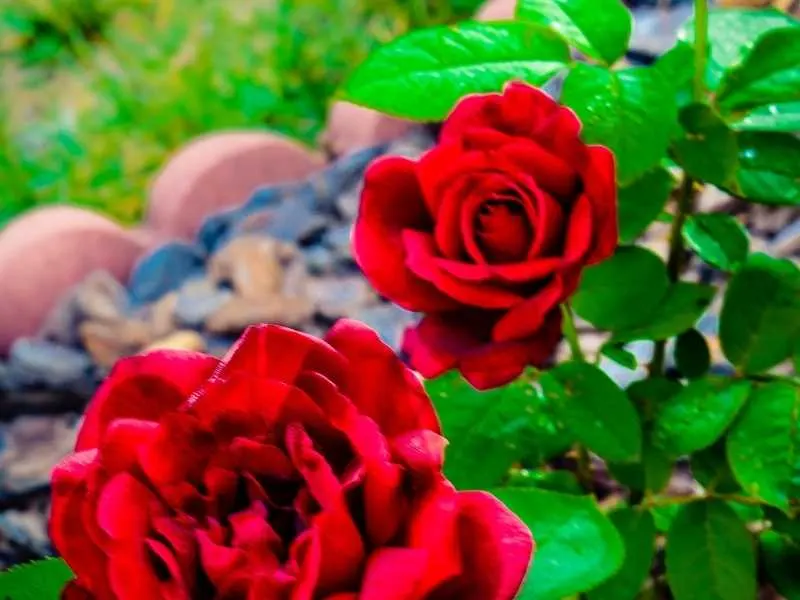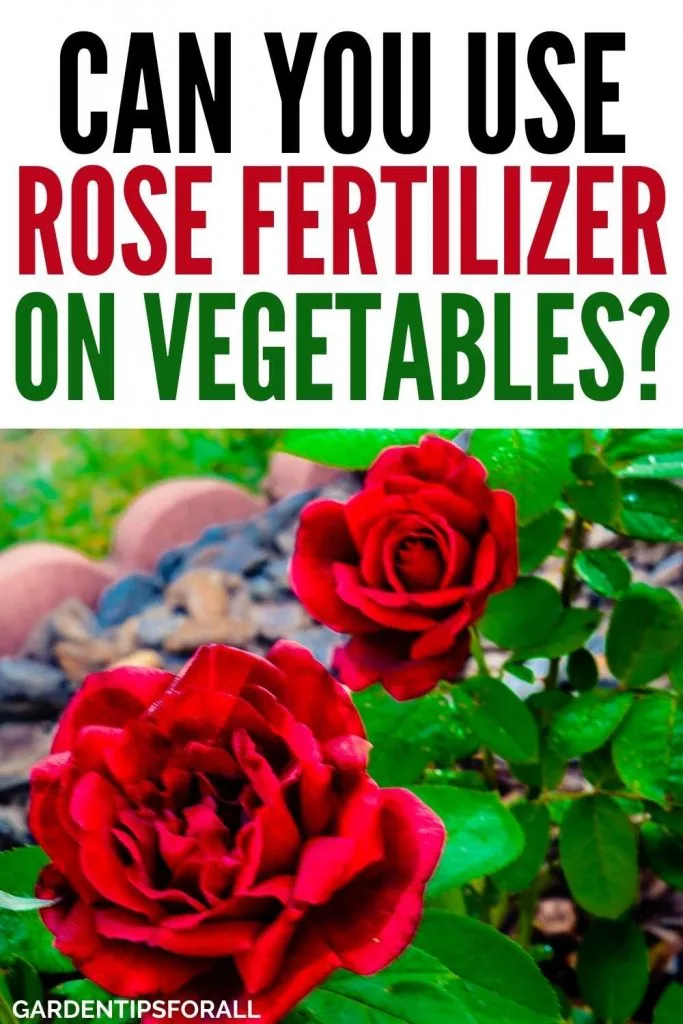Can I Use Rose Fertilizer on Vegetables?
While we have general use/all-purpose fertilizers, some fertilizers are made for specific plants. A good example is the rose fertilizer that’s specifically designed to make rose plants bloom.
But a lot of people are asking, can I use rose fertilizer on vegetables? Does that mean you can’t use it on vegetables and other plants?

You can use rose fertilizer on vegetables and other plants. It’s known as rose fertilizer because it often has an (NPK) combination that’s suitable for roses, such as the 4:3:2 in Rose Tone. But with the right amounts, this combination would still be sufficient for vegetables.
What is Rose Fertilizer Made of?
As mentioned earlier, Rose Tone is one of the most popular rose fertilizers, and according to the manufacturer, it contains the following ingredients;
- Bone meal
- Feather meal
- Poultry manure
- Alfalfa Meal
- Sulphate of Potash
- Sulfate of Potash Magnesia
- Greensland
Espoma RT18 Rose Tone, 18-Pound
Nutrients in the Rose Fertilizer
Rose tone fertilizer contains the following Nutrients combination.
4% Nitrogen – It stimulates healthy and robust leaf growth. The ability to make flowers resides in the plant’s leaves. Therefore, healthy foliage will result in more blossoms. However, excess Nitrogen will result in excess foliage growth and fewer blooms, whereas insufficient Nitrogen causes yellow leaves, immature growth, and smaller flowers.
3% Phosphorus – It encourages healthy and firm root development and profuse flower production. Inadequacy of phosphorous can cause leaf drop, soft flower stems, and sprouts that won’t open.
2% Potassium – Also called potash, potassium helps plants get better when strained by pests and disease damage or even harsh weather conditions. Insufficient potassium levels can result in discolored yellow leaf margins and fragile flower stems.
Additional Nutrients – These include calcium, magnesium, water-soluble magnesium, zinc, sulfur, copper, manganese boron, iron, and cobalt.
When Should You Apply Rose Fertilizer on Vegetables
The Rose Tone we just analyzed above has an NPK ratio of 4:3:2. But you may find some rose fertilizers with higher NPK ratios.
According to Colorado State University, you should apply at least 1 pound of 10:10:10 fertilizer per 100 feet and 2 pounds of 5:10:10 in the same area.
Based on these recommendations, you will need to apply a lot of rose fertilizer to meet this ratio.
Therefore, you should not apply rose fertilizer on vegetables during their early stages of growth when they need most of these nutrients for root development.
It would help if you prepared your soils appropriately before planting and during the first growth stages. You do this by adding compost, adequate fertilizers, mulching to inhibit weed growth, and watering the plants adequately.
Once the plants have enough nutrients in the early stages, you can introduce bonus fertilizers like rose fertilizer throughout the growing season.
And unlike most organic and synthetic fertilizers, you will not run the risk of burning your plants since rose fertilizer often has very low levels of Nitrogen.
Conclusion
Even though some fertilizers are designed for specific plants, the only difference is the NPK ratio. All you have to do is adjust the amounts or dilute the fertilizers if the ratio is too high. Remember, vegetables and other plants need certain nutrients in higher quantities in the early growth stages. Make sure that you use fertilizers with enough of these nutrients during this stage.
And ensure that the soils have adequate organic matter, are well-drained, and have the appropriate pH for the vegetables. Extra fertilizers such as rose fertilizer should only be used as a last resort.
Related Articles:


